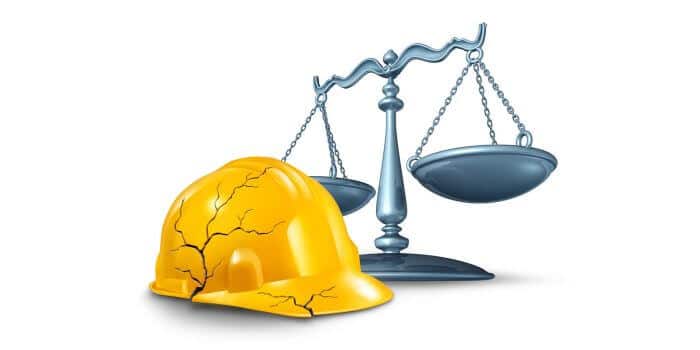Table of Contents
Can Subcontractors Sue Contractors for Construction Accidents?
If you’re a subcontractor working for a general contractor on a construction site, you may wonder what to do if you get hurt on the job since you’re covered by workers’ compensation.
But what you may not realize is that if the contractor’s negligence was a factor in the accident that caused your injuries, you may be able to sue them.
There may also be other parties that you can sue, depending on your circumstances.
Who Can a Subcontractor Sue for Construction Injuries?
Subcontractors can sue the general contractor if they are injured in a construction accident.
They may also be able to sue the owner of the property, other subcontractors, suppliers, and other parties.
According to Jesse Minc – Abogado de Accidentes de Construcción, the situation can become more complex when there are multiple parties involved.
The factors that contributed to your accident should be reviewed by an attorney to determine if you have a valid claim against the contractor or any other party.
Can You Sue a Contractor Even If You’re Getting Workers’ Comp?

Yes, you can sue even if you’re receiving workers’ compensation benefits from your employer.
Negligence by the contractor could potentially allow you to pursue additional damages for pain and suffering and additional costs and expenses that aren’t covered by workers’ comp.
If you’re a subcontractor who has been hurt on the job, you must prove that the contractor’s negligence led to the accident, causing your injuries and other losses.
Property owners and the general contractor have a responsibility for the safety of others.
There are certain circumstances where you may or may not be classified as an employee too, further complicating the issue. This is why speaking with an attorney can help you understand your rights.
First, you will need to know if you are classified as an independent contractor. If so, then your boss, the general contractor, does not have to provide you with workers’ compensation coverage.
This also means you would not have any restrictions on being able to sue them for their negligent actions or inactions that left you injured.
If you are qualified as an employee though, then you will be limited to workers’ compensation coverage.
Generally speaking, if you are a 1099 worker, you are considered an independent subcontractor whereas a W-2 worker is considered an employee covered through workers’ comp. In the finer details though, what’s on paper isn’t as important as other factors.
This means that many subcontractors are treated as employees, and hence, the general contractor that hired them is considered an employer.
The general contractor would need to provide workers’ comp in the event of injuries, which would mean they can’t be sued by a subcontractor.
Exceptions That Permit a Subcontractor to Sue

As mentioned, subcontractors can sue a general contractor in certain circumstances. These exceptions mean you can sue another at-fault party. It will depend on whether the contractor who hired you is the only liable person.
If another contractor, property owner, equipment manufacturer, driver, or another third party caused your injuries, there are no restrictions that would limit your right to sue.
For example, if you were injured due to lack of protection from safety equipment and it was determined that a manufacturer defect was the cause, you could sue the manufacturer.
Additionally, you can also sue the general contractor if they did not carry the required coverage for workers’ compensation or if they intentionally caused your injuries.
If safety violations were present, you are also permitted to sue. Since these laws can get confusing, you should discuss your workplace injuries with an attorney to find out more about your legal options.
However, it is important that you act quickly since the evidence of some construction accidents can disappear in the days following your injuries. You’ll also need to abide by the statute of limitations to file your lawsuit in enough time.
What Is the Statute of Limitations for Suing a Contractor?
In New York, injured subcontractors must file a personal injury lawsuit within three years from the date of the accident.
This is different from the two-year limit for workers’ compensation claims in the state. You will first need to notify your employer of the injury within 30 days.
Then, if the contractor was negligent and responsible for causing the accident that injured you, you should file the paperwork for your lawsuit.
There is a lot to keep track of, and since construction site accidents can be very serious, you do not want to miss the filing date.
If you miss it, you may forfeit your chance to acquire the compensation you need to fully cover your injuries.
Don’t assume that workers’ compensation is your only option for taking care of your medical bills and lost wages. In some cases, it might not be enough to cover all of your injury-related expenses.
The key is negligence and proving it may be difficult on your own. Working with an attorney that has represented similar cases can give you a better understanding of your legal options.
What Can a Lawsuit Provide Beyond Workers’ Compensation Benefits?
Workers’ compensation can cover you for work accidents. However, the problem arises when a third party, such as the contractor, is negligent in their actions.
This allows you to pursue further compensation, which you will likely need if your injuries are serious.
If you are considered as an independent subcontractor, you may miss out on other jobs due to your injuries.
This would mean you lose income and opportunities, and it could harm your business. You might not get enough compensation through your insurance for these missed opportunities or if you have endured a permanent injury that has cost you your livelihood.
Talking to an attorney during a free case evaluation gives you the chance to find out if you have a right to file a separate lawsuit for negligence against the contractor or another party.
In some instances, this may not be possible, but the only way to know for sure is to ask a lawyer.
Also, Read
What Is the Difference Between a Contractor and a Construction Company?
Efficiency in Chaos: Managing Your Construction Site